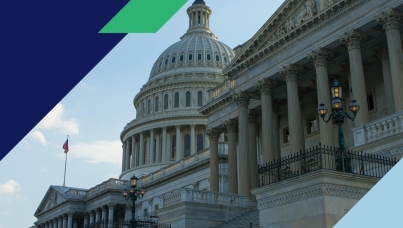Has the Dobbs decision made the public more divided on abortion?
Washington, DC, June 22, 2023 – Three in four Americans think the country has gotten more divided on abortion because of the 2022 Dobbs decision, according to the findings of a new Ipsos poll on attitudes towards abortion.
As we approach the one-year anniversary of the overturning of Roe v. Wade, the poll also finds that public opinion around the Dobbs decision and abortion in general remains mostly unchanged compared to six months ago.
Americans still want to vote on ballot measures or referendums to decide abortion’s legality, with most saying they’d vote in favor of abortion rights. At the same time, a sizeable minority of Americans report that it is now harder than it was six months ago to access an abortion in their state.
These findings represent the results of a poll of 1,017 Americans conducted between June 9 and June 11, 2023.
Detailed findings:
Supreme Court cases around abortion still divide the public, and many disapprove of how lawmakers have legislated abortion in the last year.
- The majority of Americans continue to disagree with the 2022 Dobbs decision (56%), believe the original 1973 Roe v. Wade decision is correct (64%), and view the Supreme Court’s Dobbs decision as political (67%).
- Republicans, in contrast with all Americans as well as both Democrats and independents, are more likely to agree with the Dobbs decision, disagree with Roe v. Wade, and disagree that the Dobbs decision was political.
- Over half of all Americans (53%) disapprove of how lawmakers in their state have handled abortion in the last year. This level is similar to Americans’ disapproval of how state lawmakers have handled taxes (55%), education (50%), and laws that affect LGBTQ people (50%).
- One contributing factor may be that Americans are more likely to say they think lawmakers in their state pass abortion laws based off what their donors and base want (54%) rather than what the majority of the public wants (41%).
- Republicans are more likely to think lawmakers make decisions on abortion based off of their donors and base (64%) rather than the public (32%) compared to Democrats (50% vs. 47%) or independents (51% vs. 47%).

A sizeable minority of Americans report that it is now harder for them to access an abortion in their state. Many people also feel that abortion should remain legal.
- Over one in three Americans (35%) say it has become harder to access an abortion in their state compared to six months ago, slightly more than when the question was last asked in January (28%), with no difference by party.
- Around one in ten Americans (13%) also say they have considered moving states because of changes to abortion laws, including around two in five Democrats (17%).
- Americans attitudes on the legality of abortion exists in shades of gray, though a majority feel that abortion should be legal at least very early in pregnancy.
- Two in three feel abortion should be legal at least early in pregnancy, breaking down to a plurality who say they think abortion should be legal with very few or no restrictions (34%), 17% saying abortion should be legal until early to mid-pregnancy (15-20 weeks) and 14% saying abortion should be legal very early in pregnancy (6-9 weeks).
- One in four (25%) say abortion should be fully banned with exceptions for rape, incest, or to save the life of the mother, while 7% say abortion should be fully banned with no exception.
- This also differs at the partisan level – Republicans are the most likely to say abortion should be fully banned with exceptions for rape, incest, or to save the life of a mother (48%), while Democrats are more likely to say abortion should be legal with very few or no restrictions (57%).
Still, most Americans would like to vote on ballot measures or referendums to decide abortion rights, and a majority would vote in favor of abortion legality.
- Most Americans say they would rather let voters decide abortion rights – 69% say they would support their state using ballot measures or referendums to decide abortion rights, while 28% would oppose them. Support for ballot measures is a view shared by Republicans (67%), Democrats (73%), and independents (71%) alike.
- If given the chance, the majority of Americans would vote in favor of abortion legality (58%) rather than against it (28%). However, this issue has the typical partisan splits: Democrats are overwhelmingly more likely to vote in favor of abortion rights (81% in favor of abortion, 12% oppose), while Republicans are much more likely to say they would vote against abortion legality (30% in favor of abortion, 60% oppose).
- Another area of partisan disagreement: whether abortion is a vital component of women’s healthcare. While Americans in general are more likely to agree (64%) with that statement, Democrats (86%) and Republicans (32%) are far apart.
About the Study
These are the findings of an Ipsos poll conducted June 9-11, 2023, by Ipsos using our KnowledgePanel®. This poll is based on a nationally representative probability sample of 1,017 general population adults aged 18 or older. The sample includes 268 Republicans, 334 Democrats, and 315 Independents.
The survey was conducted using KnowledgePanel, the largest and most well-established online probability-based panel that is representative of the adult US population. Our recruitment process employs a scientifically developed addressed-based sampling methodology using the latest Delivery Sequence File of the USPS – a database with full coverage of all delivery points in the US. Households invited to join the panel are randomly selected from all available households in the U.S. Persons in the sampled households are invited to join and participate in the panel. Those selected who do not already have internet access are provided a tablet and internet connection at no cost to the panel member. Those who join the panel and who are selected to participate in a survey are sent a unique password-protected log-in used to complete surveys online. As a result of our recruitment and sampling methodologies, samples from KnowledgePanel cover all households regardless of their phone or internet status and findings can be reported with a margin of sampling error and projected to the general population.
The study was conducted in English. The data were weighted to adjust for gender by age, race/ethnicity, education, household income, Census region, metropolitan status, and 2020 vote choice. The demographic benchmarks came from the 2022 March Supplement of the Current Population Survey (CPS). The 2020 vote choice benchmarks came from the Federal Election Commission’s Official 2020 Presidential General Election Results.
- Age (18-29, 30-44, 45-59, 60+) by Gender (Male, Female)
- Race/ethnicity (White, Non-Hispanic; Black, Non-Hispanic; Other/2+ races, Non-Hispanic; Hispanic
- Education (Less than High School, High School graduate, Some College, Bachelor or higher)
- Household Income (Under $25,000; $25,000-$49,999; $50,000-$74,999; $75,000-$99,999; $100,000-$149,999; $150,000 and over)
- Census Region (Northeast, Midwest, South, West)
- Metropolitan Status (Metro, non-Metro)
- 2020 Vote Choice (Biden, Trump, All other/Did not vote)
The margin of sampling error is plus or minus 3.3 percentage points at the 95% confidence level, for results based on the entire sample of adults. The margin of sampling error takes into account the design effect, which was 1.13. The margin of sampling error is higher and varies for results based on sub-samples. The margin of sampling error for the Republicans is plus or minus 6.2 percent, with a design effect of 1.08. The margin of sampling error for the Democrats is plus or minus 5.6 percent, with a design effect of 1.08. The margin of sampling error for the independents is plus or minus 5.7 percent, with a design effect of 1.08. In our reporting of the findings, percentage points are rounded off to the nearest whole number. As a result, percentages in a given table column may total slightly higher or lower than 100%. In questions that permit multiple responses, columns may total substantially more than 100%, depending on the number of different responses offered by each respondent.
For more information on this news release, please contact:
Mallory Newall
Vice President, US
Public Affairs
+1 202 374-2613
[email protected]
About Ipsos
Ipsos is the world’s third largest market research company, present in 90 markets and employing more than 18,000 people.
Our passionately curious research professionals, analysts and scientists have built unique multi-specialist capabilities that provide true understanding and powerful insights into the actions, opinions and motivations of citizens, consumers, patients, customers or employees. We serve more than 5000 clients across the world with 75 business solutions.
Founded in France in 1975, Ipsos is listed on the Euronext Paris since July 1st, 1999. The company is part of the SBF 120 and the Mid-60 index and is eligible for the Deferred Settlement Service (SRD).
ISIN code FR0000073298, Reuters ISOS.PA, Bloomberg IPS:FP www.ipsos.com



